Eat fruit during pregnancy, and it is essential to eat an exceptionally healthy, balanced, and nutritious diet during pregnancy; after all, two living beings have to be supplied with all the needed vitamins and minerals. It is recommended to eat fruit and vegetables five times a day. There should be no more than two servings of fruit, as sweet fruit contains plenty of fructose. Too much fructose can lead to obesity, diabetes, and fatty liver.
In the following, we have compiled for you which fruit is particularly suitable for pregnant women and what each fruit contains.
The information on vitamins and nutrients always relates to 100 grams of fruit. The often mentioned beta-carotene (ß-carotene) is a precursor of retinol (vitamin A) and is also called provitamin A.
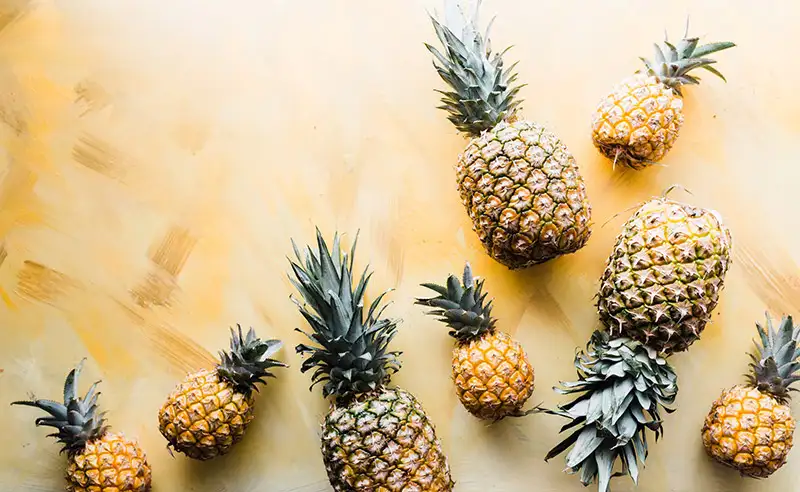
Pineapple
- Nutrient
Rich in vitamins (especially vitamin C, but also ß-carotene) and minerals (especially potassium & magnesium). 55 kcal, minimal traces of fat.
- Recommended
Yes, in moderation. Since it is acidic, too much can cause soreness at the corners of the mouth and is not recommended for sensitive stomachs.
- Good to know
Many women simply eat pineapple during pregnancy raw. To completely replenish vitamin C daily ration, you would have to consume around 550 g of pineapple. It is best to combine the pineapple with other vitamin C suppliers, e.g., strawberries in a small fruit salad.
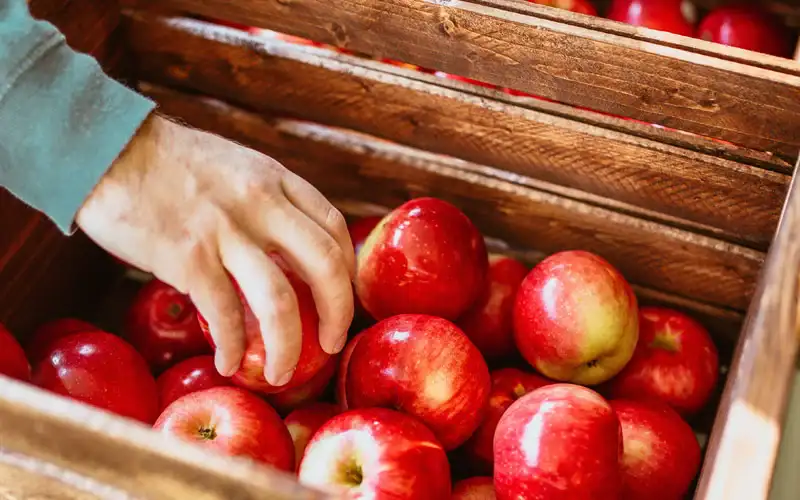
Apple (with peel)
- Nutrient
Rich in vitamins (especially vitamin C), minerals (especially potassium), and fiber. 65 kcal, hardly any fat.
- Recommended
Yes, according to research, regular consumption of apples during pregnancy reduces the risk of children developing asthma later.
- Good to know
Buy organic apples if possible and wash them thoroughly. Up to 70 percent of the vitamins are in the apple peel or directly below it – so eat them with peels!
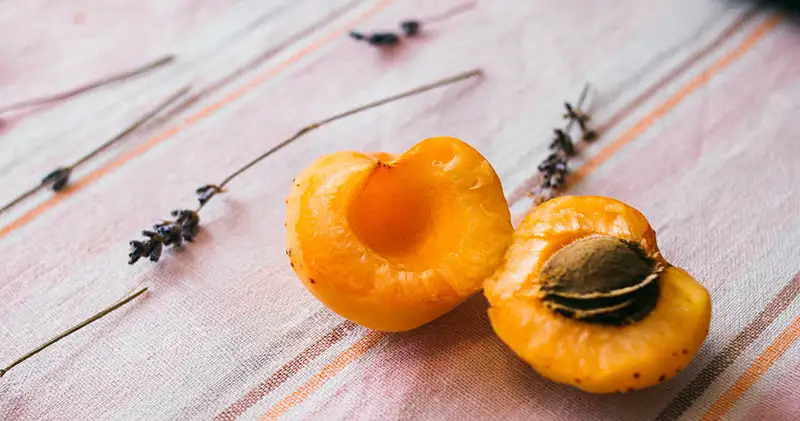
Apricots
- Nutrient
Rich in vitamins (high ß-carotene content) and minerals (especially potassium, magnesium, phosphate). 43 kcal, 1 g fat, 8 g carbs.
- Recommended
Yes. The high magnesium content prevents nocturnal muscle cramps in the legs and premature labor. Apricots naturally provide the necessary vitamin A content (thanks to the high ß-carotene value). According to a study, a sufficient supply of vitamin A during pregnancy is essential to support the development of the unborn baby kidneys, but there should be no excess eating! It is vital not to use additional vitamin A supplements: Otherwise, it can lead to severe deformities in the unborn child.
- Good to know
Fresh raw apricots taste extremely good. If you are a sweet breakfast person, you can, of course, eat it in the form of fruit spread.

Avocado
- Nutrient
Rich in vitamins (lots of iron, B1, B2, B6, C & folic acid), minerals (especially potassium, magnesium & phosphate), and important fatty acids. 138 kcal, 12.5 g fat.
- Recommended
Definitely eat avocado, it’s one of the best fruit during pregnancy. Avocados have lots of unsaturated fatty acids and are rich in folic acid.
- Good to know
Although the avocado is extremely high in calories, it is still a real must for the diet, as it has essential fatty acids to offer, which in turn, according to studies, reduce the risk of premature birth.
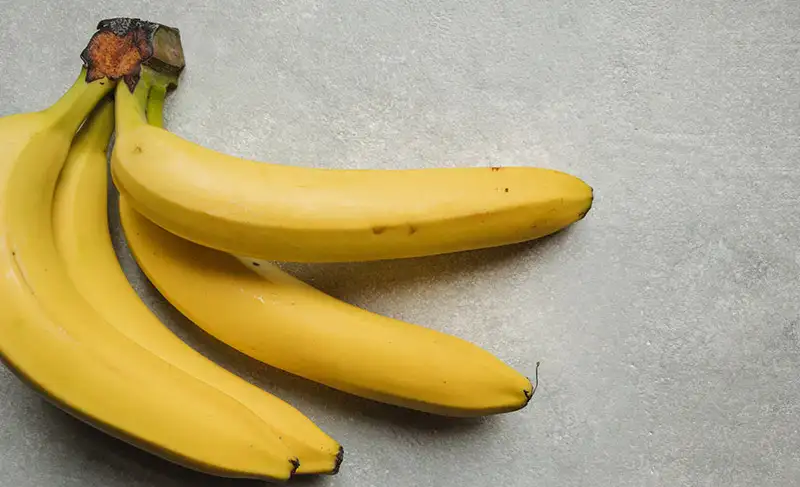
Banana
- Nutrient
An especially good supplier of vitamin B6 and folic acid, also, quite a high proportion of potassium and magnesium. 93 kcal, minimal traces of fat.
- Recommended
Yes, in moderation. Banana is one of the most popular fruit during pregnancy. Bananas are medium in sugar and should not be eaten in large quantities. Vitamin B6 supports the formation of red blood cells and the development of the brain and nervous system (including the unborn baby).
- Good to know
Unfortunately, bananas are easy to cram. Other than that, they are a great snack and quickly give you the energy you need when you feel tired.
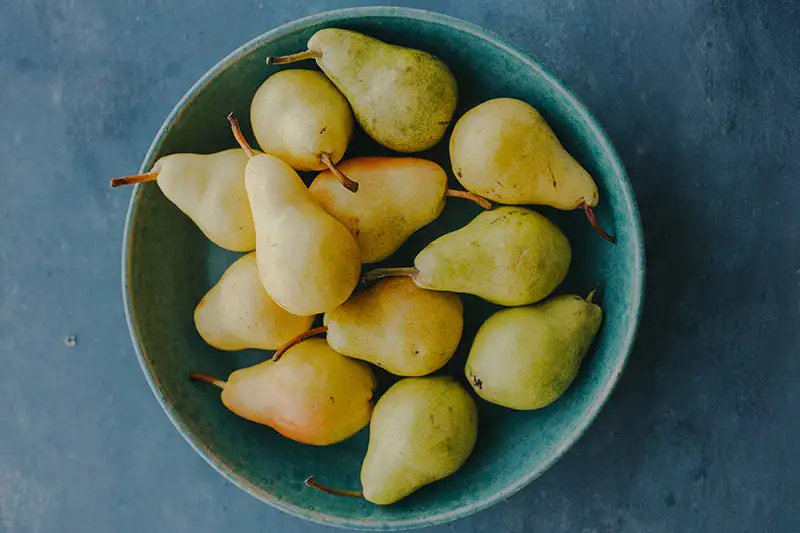
pear
- Nutrient
Rich in vitamin A, folic acid, and potassium. 58 kcal, minimal traces of fat.
- Recommended
Yes, but if consumed frequently during pregnancy, it is preferred without the peel. Pears can help against typical water retention.
- Good to know
Like their juice, pears are low in acid, mild, and easily digestible. Recent studies have shown that arbutin, which is enriched in its shell, is converted by intestinal bacteria into carcinogenic hydroquinone. So please peel the pears!
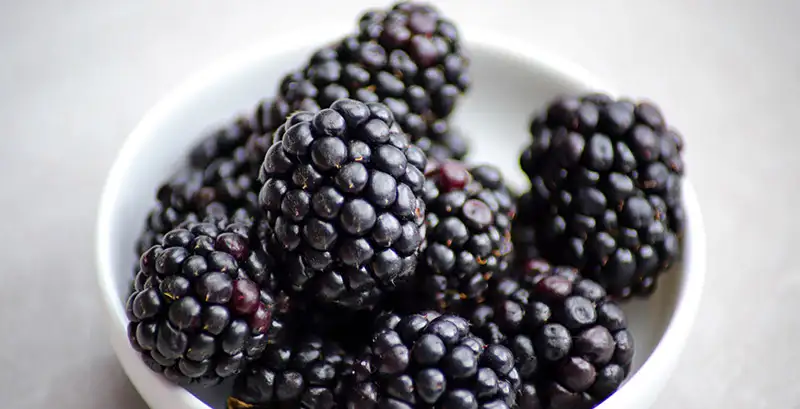
Blackberry
- Nutrient
Rich in vitamin E and especially C but also it has ß-carotene, folic acid, potassium, calcium, magnesium, phosphate, and iron. 46 kcal, 1 g fat, 6 g carbs
- Recommended
Yes, eat blackberries during pregnancy. It’s a great source of nutrients.
- Good to know
At the end of pregnancy, the blackberry leaf tea (just like raspberry leaf tea) can have an antispasmodic effect and stimulate labor.
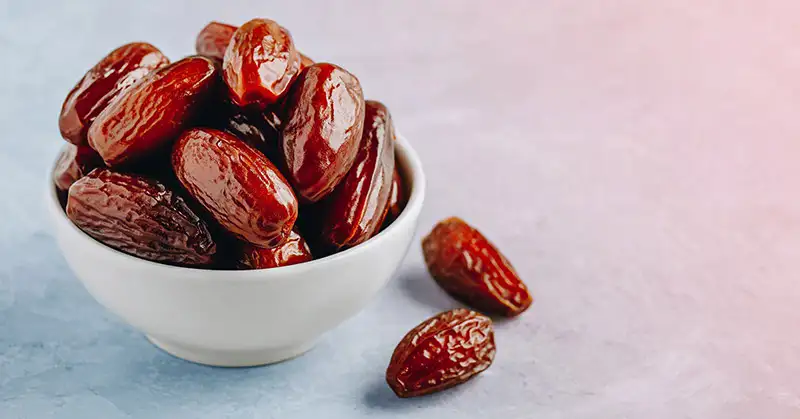
Dates
- Nutrient
Rich in ß-carotene, vitamins B1, B2, B6, and folic acid as well as potassium, calcium, magnesium, and phosphorus. 114 kcal, minimal traces of fat.
- Recommended
Yes, eat dates during pregnancy but in moderation: it is a very good source of minerals and vitamins, it is also quite high in calories.
- Good to know
The date is said to help if you have an unfulfilled desire to have children.
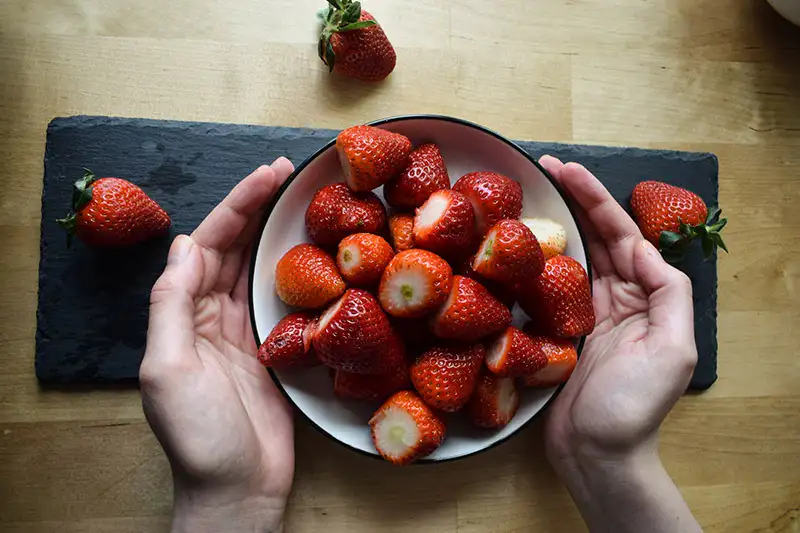
strawberry
- Nutrient
Particularly rich in vitamin C and folic acid and a good source of potassium, calcium, magnesium, phosphate, and iron. 36 kcal, minimal traces of fat.
- Recommended
Yes, the very high proportion of folic acid, in particular, is great for pregnant women.
- Good to know
Many avoid strawberries because they think that the unborn baby could develop allergies later, but this has not yet been proven.
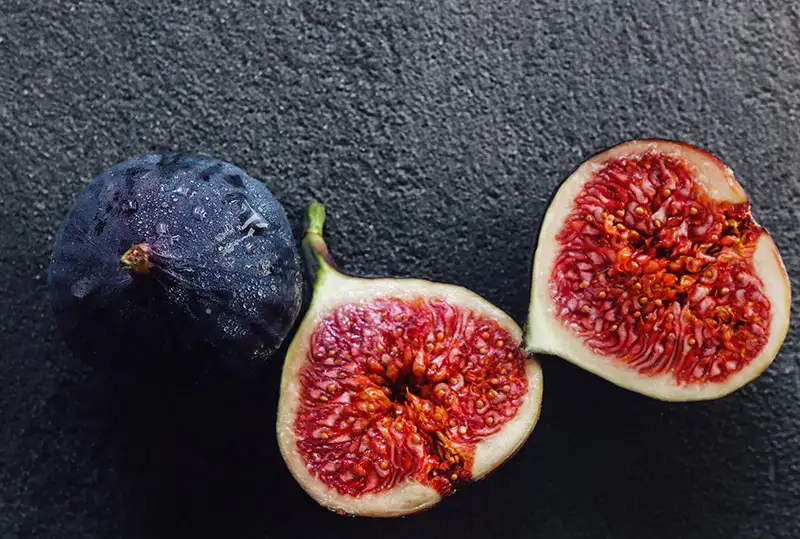
fig
- Nutrient
Rich in vitamins E, B1, B2, B6, ß-carotene and potassium, magnesium, phosphate, iron, zinc and above all calcium. 61 kcal, minimal traces of fat.
- Recommended
Yes, figs are great sources of nutrients.
- Good to know
Figs naturally help with constipation. If consumed in excess, however, they can lead to flatulence due to the high fructose content.
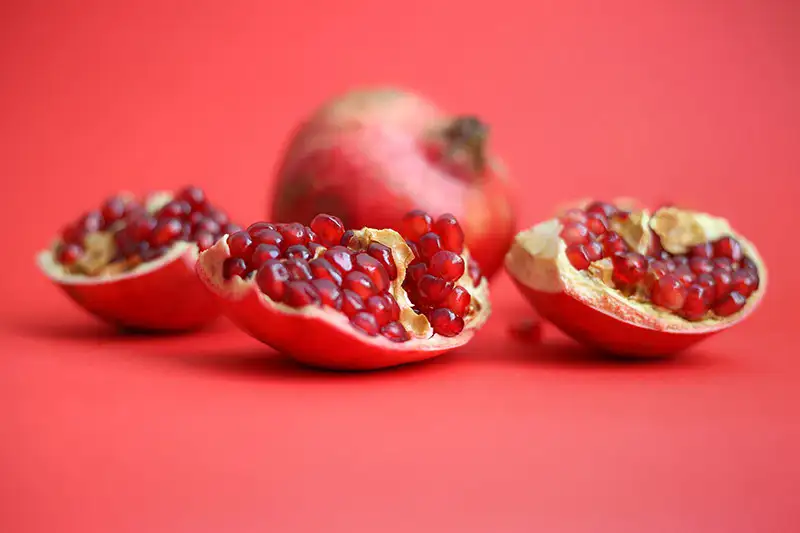
Pomegranate
- Nutrient
Rich in ß-carotene, vitamins B1, B2, C, and potassium. 80 kcal, 1 g fat, 16 g carbs
- Recommended
Yes, the pomegranate is a very good source of minerals and vitamins during pregnancy.
- Good to know
Pomegranate has a positive effect on your cardiovascular system. Pomegranate seeds are also rich in fiber and thus stimulate digestion.
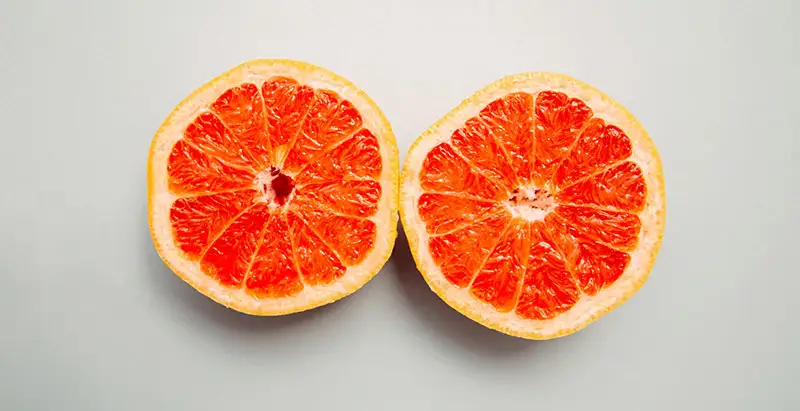
Grapefruit
- Nutrient
Rich in vitamin B1 and especially C as well as ß-carotene, potassium, calcium, magnesium and phosphate. 45 kcal, minimal traces of fat.
- Recommended
Yes, recommended during pregnancy thanks to the high vitamin C content. You should only be careful during breastfeeding, the offspring would get an upset stomach, and/or causes rashes.
- Good to know
Grapefruits are an ideal scooping breakfast snack as they stimulate digestion and boost your metabolism.
Caution: They may interact with medications.
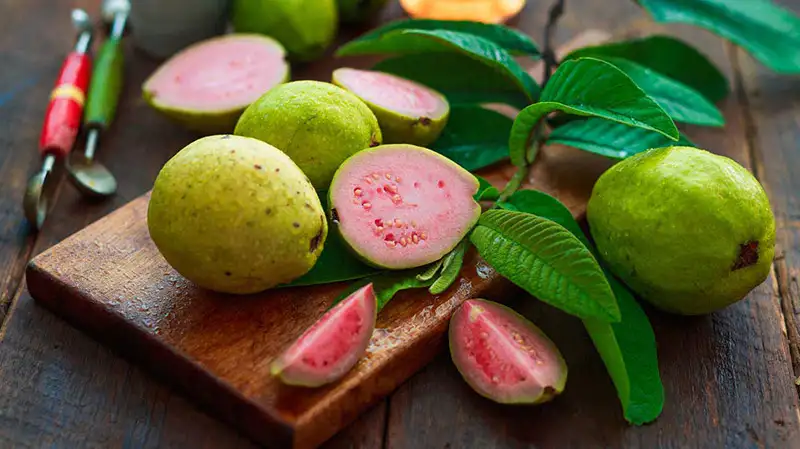
Guava
- Nutrient
Rich in ß-carotene, vitamin E, B6, and C as well as potassium, phosphorus, iron, and zinc. 44 kcal, 1 g fat, 6 g carbs
- Recommended
Yes, guavas are great nutrients.
- Good to know
A guava contains around 6 times as much vitamin C as an orange.
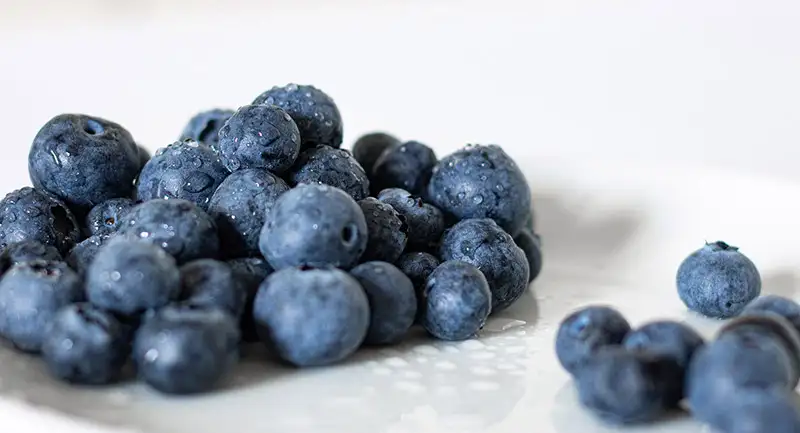
Blueberry
- Nutrient
Particularly rich in vitamin E, but also C, ß-carotene, and folic acid as well as potassium, calcium, and iron. 45 kcal, 1 g fat, 6 g carbs.
- Recommended
Yes, blueberries are great sources of minerals and vitamin E.
- Good to know
The fresh berries have anti-inflammatory effects and strengthen the immune system, while dried berries help with diarrhea. Blueberries taste wonderfully fruity as a smoothie, in yogurt, and also in a salad.
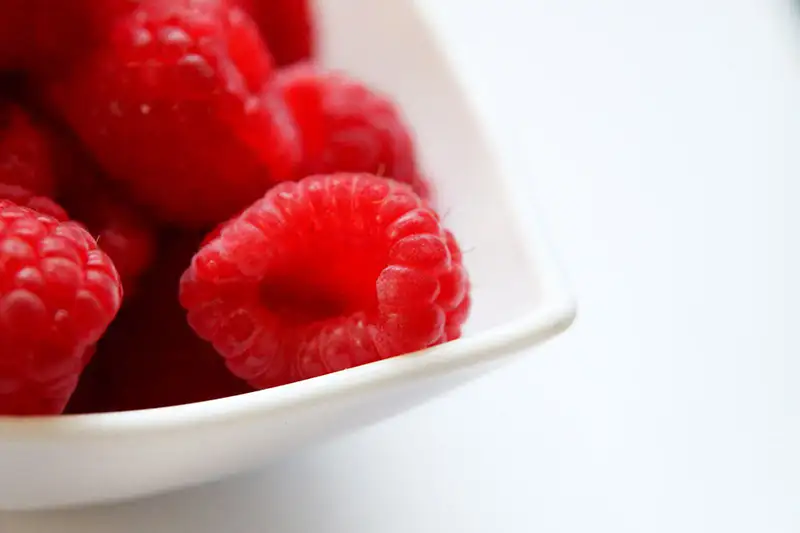
Raspberry
- Nutrient
Rich in vitamins E, C, and folic acid as well as potassium, calcium, magnesium, phosphate, and, above all, iron! 43 kcal, minimal traces of fat.
- Recommended
Yes, raspberries are great sources of minerals and vitamin E.
- Good to know
Raspberries not only taste delicious; they also help wonderfully to replenish the iron depot!
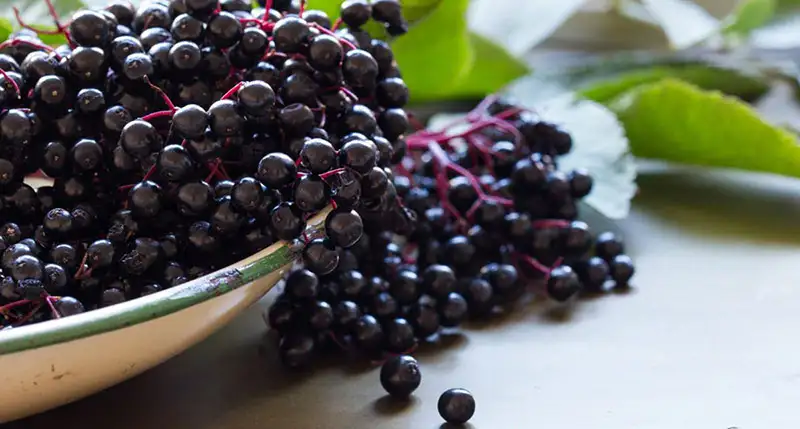
Elderberry
- Nutrient
Rich in vitamin C, potassium, phosphorus, and iron. 62 kcal, 0 g fat, 8 g carbs
- Recommended
Yes, because it is wonderfully suitable for replenishing your iron deposits, for example in the form of elderflower juice!
- Good to know
A pretty custom in the Nordic countries: there the elderberry is also revered as a birth tree – it helps all pregnant women during pregnancy, labor, and delivery. The pregnant woman, who touches the branches of the royal elder, secures the help and kindness of the goddess and her own ancestors. Aside from that, elderberry is expectorant, diaphoretic, anti-inflammatory, and antispasmodic.
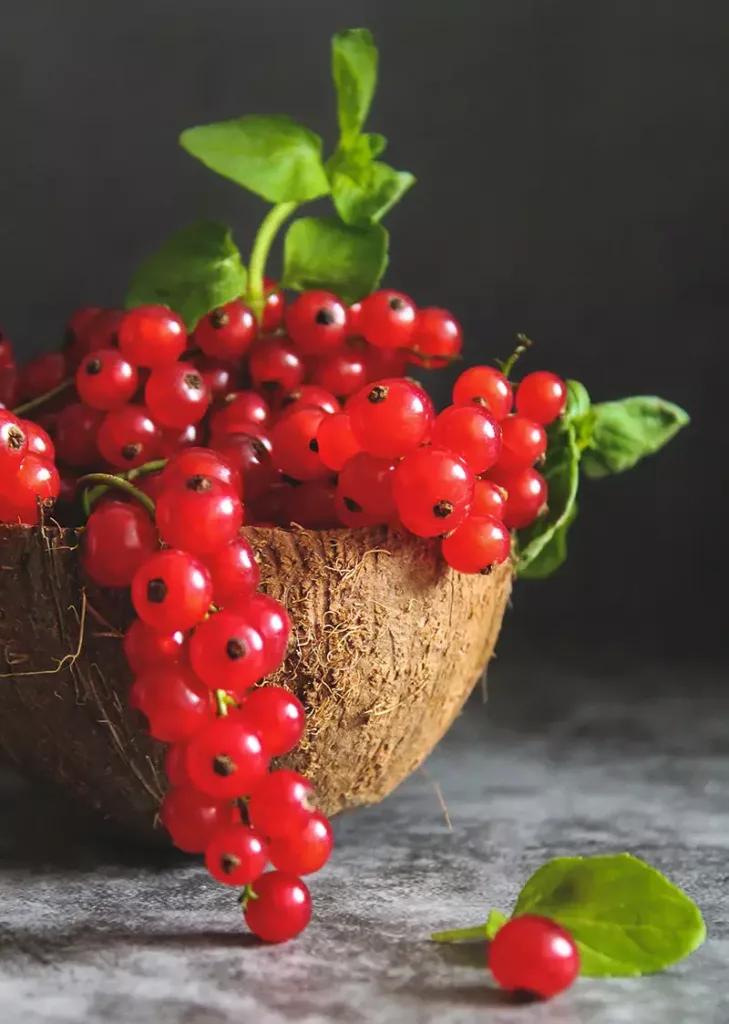
Currant
- Nutrient
Rich in vitamin E and C as well as potassium, calcium, magnesium, phosphate, fiber, and above all iron! 40 kcal, minimal traces of fat.
- Recommended
Yes, currants are great sources of minerals (especially iron!) And vitamin E.
- Good to know
The black currant contains four times as much vitamin C as the red currant. That’s why it tastes sourer. Therefore, 100 g of the fruit is the maximum amount to get your daily vitamin C boost as a pregnant woman. The small seeds also contain some fiber.
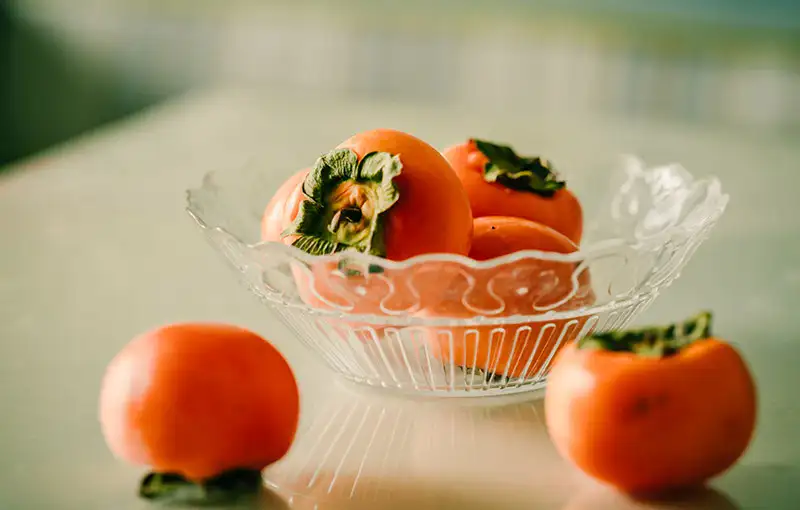
Persimmon
- Nutrient
Extremely high ß-carotene value and rich in potassium and phosphorus. 76 kcal, minimal traces of fat.
- Recommended
Persimmons naturally provide the necessary vitamin A content (thanks to the high ß-carotene value). One study found that a sufficient intake of vitamin A during pregnancy is necessary to support the development of the unborn baby kidneys, but too much is not good either. It is therefore essential not to use additional vitamin A supplements: Otherwise, deformities can occur in the unborn baby.
- Good to know
Since the persimmon is a sugar-rich fruit, it should be consumed in moderation.
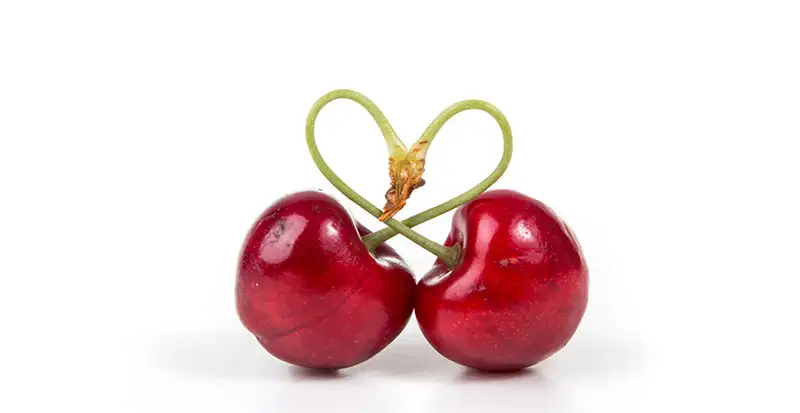
Cherry
- Nutrient
Whether sweet or sour, cherries are rich in ß-carotene (significantly the sour ones), vitamin C and folic acid as well as potassium (significantly the sweet ones), calcium, phosphate, and iron.
Sour: 54 kcal, 1 g fat, 10 g carbs
sweet: 64 kcal, minimal traces of fat.
- Recommended
Yes, cherries are great sources of minerals and especially folic acid.
- Good to know
With a handful of cherries, the folic acid depot can be refilled easily. Cherries can have a laxative effect if consumed in excess, which is sometimes helpful during pregnancy.
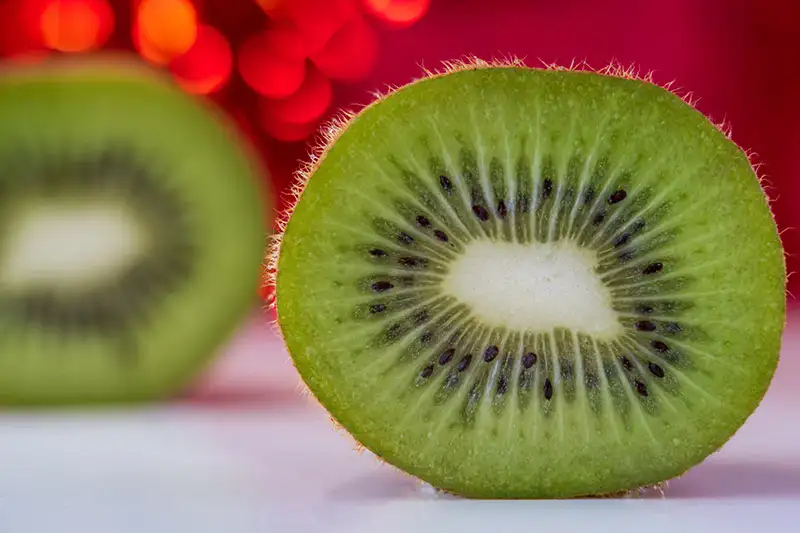
Kiwi
- Nutrient
Very rich in vitamin C, but also vitamin E as well as potassium, calcium, magnesium, phosphate, and iron. 62 kcal, 1 g fat, 9 g carbs
- Recommended
Yes, kiwis are great sources of minerals, but above all vitamin C!
- Good to know
Eat Kiwis during pregnancy because they contain more vitamin C than lemons, but they can also boast good iron values. This can strengthen the body’s defenses and the immune system, especially in winter.
Kumquat
- Nutrient
Rich in ß-carotene, vitamins B1, B2, C, and sodium, potassium, and iron. 75 kcal, minimal traces of fat.
- Recommended
Yes, a great supplier of vitamins and minerals.
- Good to know
Contains citric acid, which has an antibacterial and alkalizing effect on the urine, which is particularly important for the nutrition of people with a predisposition to kidney stones. Also, citric acid enhances the effects of vitamin C.
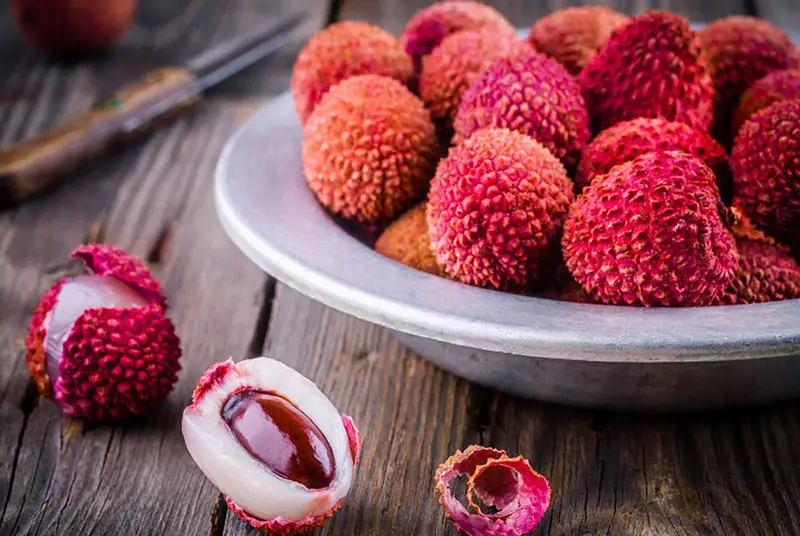
Lychee
- Nutrient
Rich in vitamins B1, B2, and C as well as potassium, and phosphorus. 78 kcal, minimal traces of fat, 17 g carbs.
- Recommended
Yes, even if it is not a mineral or vitamin highlight.
- Good to know
In its homeland (southern China), the lychee is known as the “giver of joie de vivre” and also as a love fruit. It is used there against many types of physical and emotional stress.
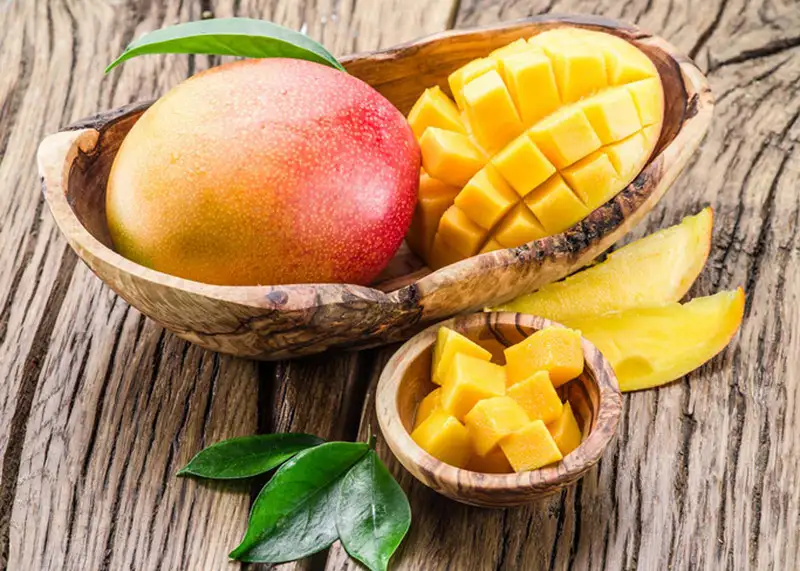
Mango
- Nutrient
Rich in vitamins E, B6, C, and folic acid, as well as potassium, and magnesium. The insanely high proportion of ß-carotene! 62 kcal, minimal traces of fat
- Recommended
Yes, the mango is wonderfully suitable for topping up vitamin A deposit naturally! One more note: pregnant women should avoid vitamin A supplements: an excess can lead to severe deformities in the unborn baby.
- Good to know
The mild mangoes are easy to digest, gentle on the stomach, and better than their reputation: From a scientific point of view, there is no evidence that the consumption of mangoes could harm the unborn baby. If you are still afraid, limit your mango consumption to a “normal” level!
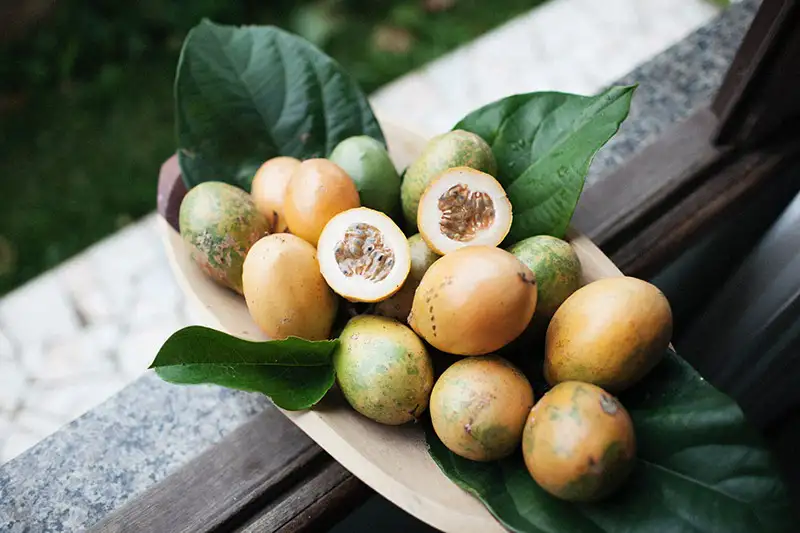
Maracuja
- Nutrient
Very rich in ß-carotene, vitamins E, B2, B6, and C as well as potassium, phosphorus, iron (!) And zinc. 67 kcal, minimal traces of fat.
- Recommended
Absolutely, as a great iron supplier, among other things!
- Good to know
If the fruit skin is wrinkled, it is not a sign of spoilage; it is only through this that because the fruit developed its full aroma.
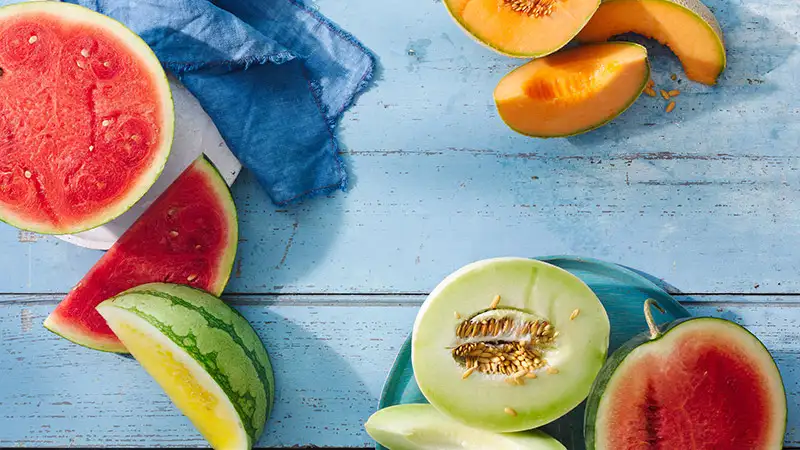
Melon
- Nutrient
Honeydew melon: very high ß-carotene content, and rich in vitamin C, folic acid, potassium, and phosphate. 69 kcal, minimal traces of fat;
Watermelon: rich in ß-carotene, and potassium. 39 kcal, minimal traces of fat.
- Recommended
Watermelon: Yes, in moderation.
Honeydew melon: Yes, the honeydew melon is wonderfully suitable for topping up vitamin A depot, naturally! However, this type of melon is very rich in sugar. Therefore, it is better to enjoy watermelon. But: Pregnant women should avoid vitamin A supplements: an excess can lead to severe deformities in the unborn child.
- Good to know
Watermelon works wonderfully against the typical water retention!
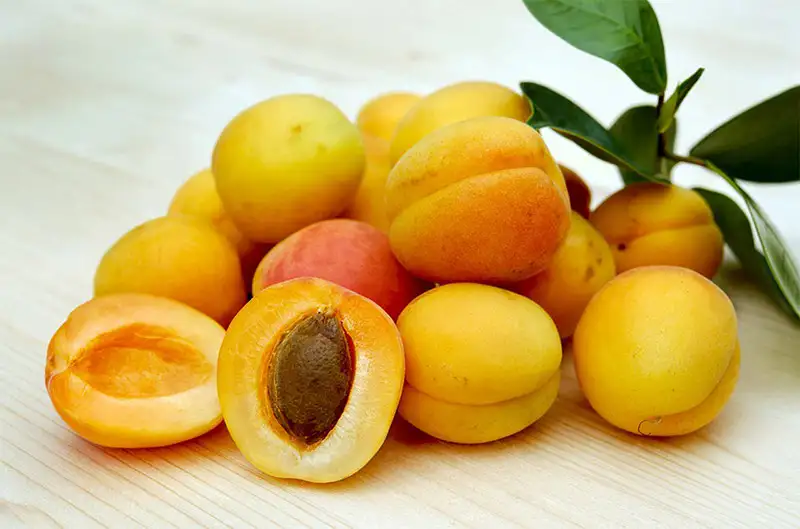
Mirabelle
- Nutrient
Rich in vitamin E, ß-carotene as well as potassium, phosphate, and iron. 67 kcal, minimal traces of fat.
- Recommended
Yes, there is nothing against the regular consumption of Mirabelle plums.
- Good to know
Mirabelle plums have a dehydrating effect and support digestion. Very practical if you are pregnant and suffer from constipation.
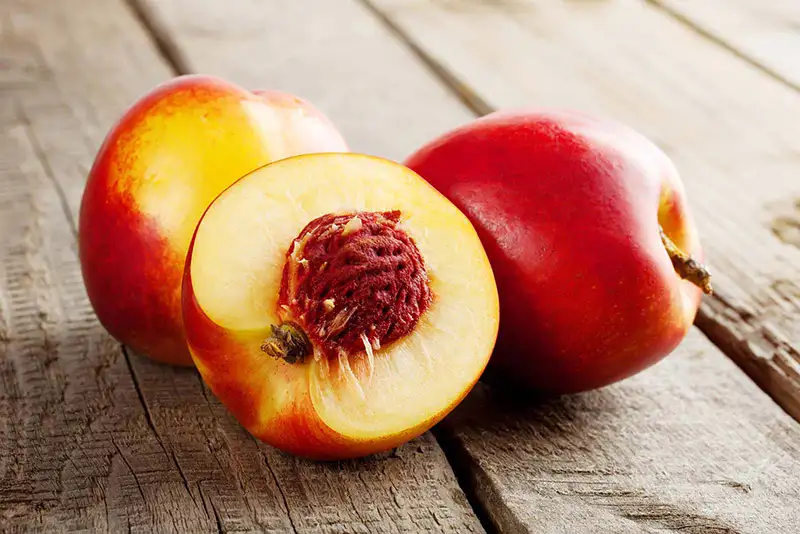
Nectarine
- Nutrient
Rich in ß-carotene, vitamins E, B1, B6, C, and potassium. 60 kcal, minimal traces of fat.
- Recommended
Yes, even if it is not a mineral or vitamin highlight. it has a detoxifying and blood purifying effect.
- Good to know
Since nectarines hardly ripen, you should buy the ones that are harvested almost fully ripe, because only those are really tasty.
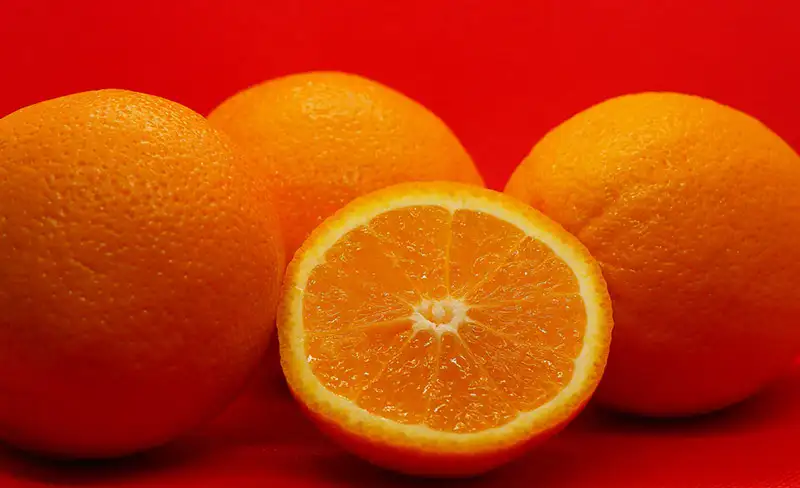
Orange
- Nutrient
Rich in vitamin C, and folic acid, as well as potassium, calcium, phosphate, and iron. 47 kcal, minimal traces of fat.
- Recommended
Yes, eat oranges during pregnancy. A great source of vitamin C and folic acid.
- Good to know
Thanks to vitamin C, oranges promote the absorption of iron. If you are on a vegetarian diet, you should always eat or drink something rich in vitamin C in addition to vegetable sources of iron (millet, lentils, cereals).
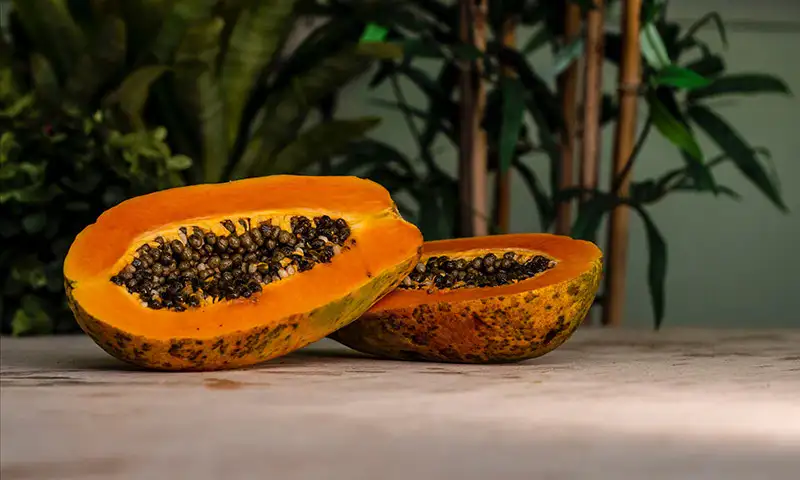
Papaya
- Nutrient
Particularly rich in vitamin C (almost twice as much mg as 100 g orange), but also ß-carotene as well as potassium, and magnesium. 36 kcal, minimal traces of fat.
- Recommended
Yes, conditionally: Because the normal consumption of ripe papaya during pregnancy does not pose a significant risk. However, unripe or semi-ripe papaya is not advisable during pregnancy because it Can have a laxative effect.
- Good to know
The papaya helps naturally against heartburn.
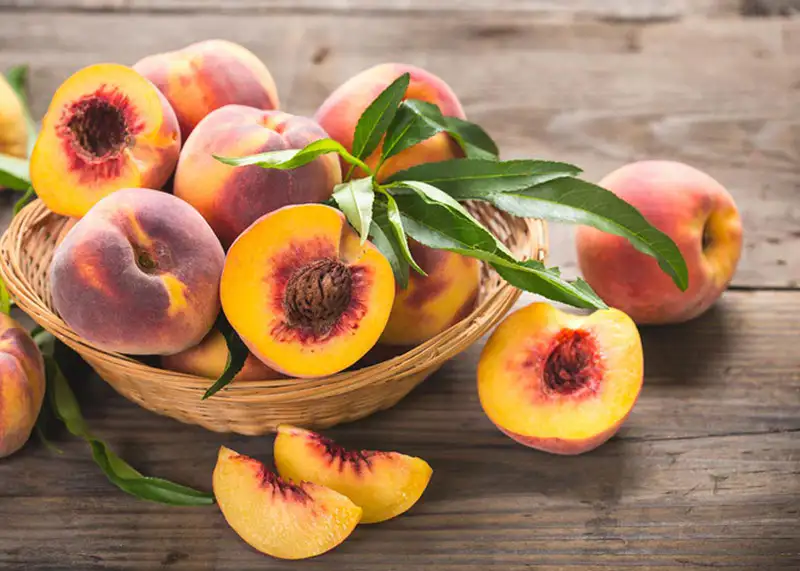
Peach
- Nutrient
Rich in vitamin E as well as potassium and phosphate. 44 kcal, minimal traces of fat.
- Recommended
Yes! One of the best fruits during pregnancy.
- Good to know
Peaches have a dehydrating effect and put you in a good mood by driving away restlessness and nervousness.
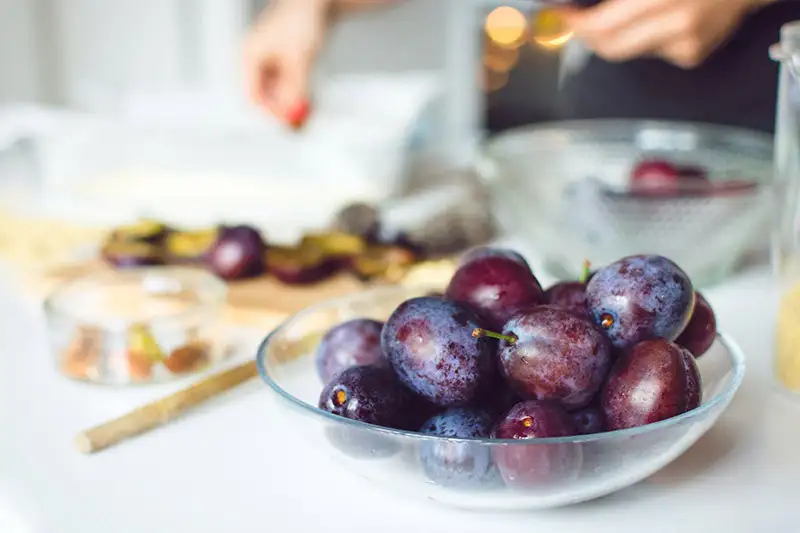
Plum
- Nutrient
Rich in vitamins E, B1, ß-carotene, and calcium as well as niacin. 48 kcal, minimal traces of fat.
- Recommended
Yes, plums are wonderful to incorporate into a pregnant woman’s diet. They are rich in minerals and vitamins.
- Good to know
Plums help with constipation during pregnancy.
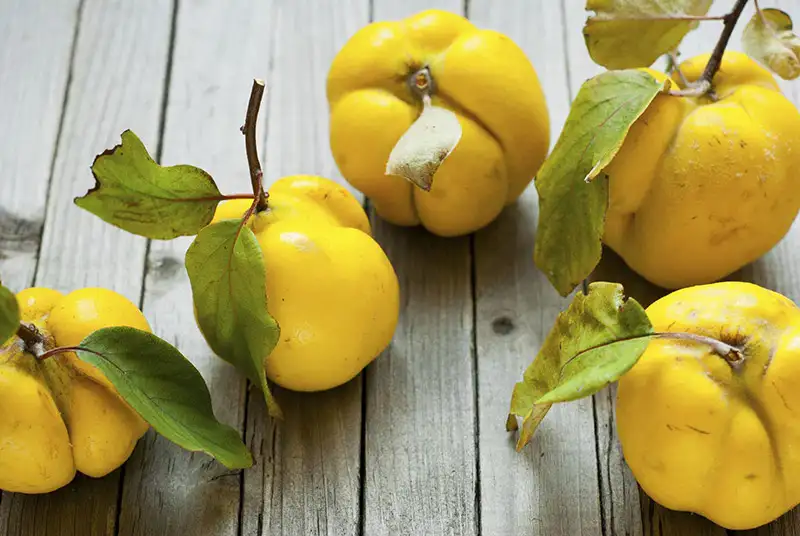
Quince
- Nutrient
limited in terms of nutritional content. 50 kcal, minimal traces of fat.
- Recommended
Yes. The quince does not have as many nutrients to offer as other types of fruit. But legend says that pregnant women who eat quince give birth to smarter and more beautiful children. Trying it out doesn’t hurt.
- Good to know
A distinction is made between pear and apple quinces. Pear quinces are milder, but not as aromatic as apple quinces.
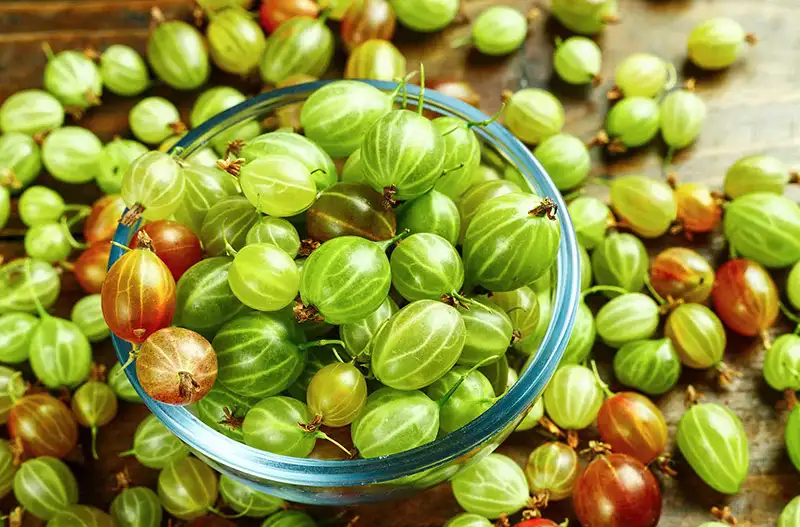
Gooseberry
- Nutrient
Rich in vitamin C and folic acid, as well as potassium, calcium, phosphate, and iron. 43 kcal, minimal traces of fat.
- Recommended
Yes, gooseberries are great sources of minerals and vitamin C!
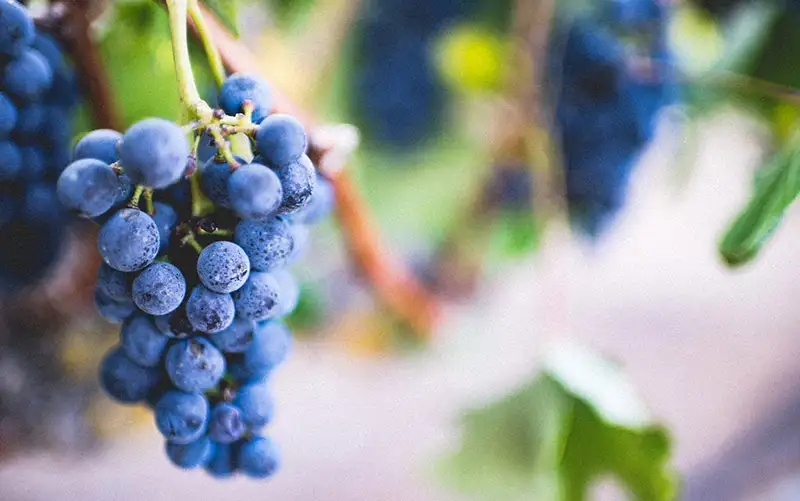
Grape
- Nutrient
High in folic acid and potassium, calcium, and phosphate. 72 kcal, minimal traces of fat, 17 g carbs.
- Recommended
Yes, but it should be consumed in moderation during pregnancy! Because grapes are super delicious and great sources of folic acid, but they have a relatively high number of calories due to the high fructose content.
- Good to know
After consumption, grapes provide a quick boost of energy and put you in a good mood. Grapes taste best on their own or in a fruit salad. It is best to buy unpolluted organic goods.
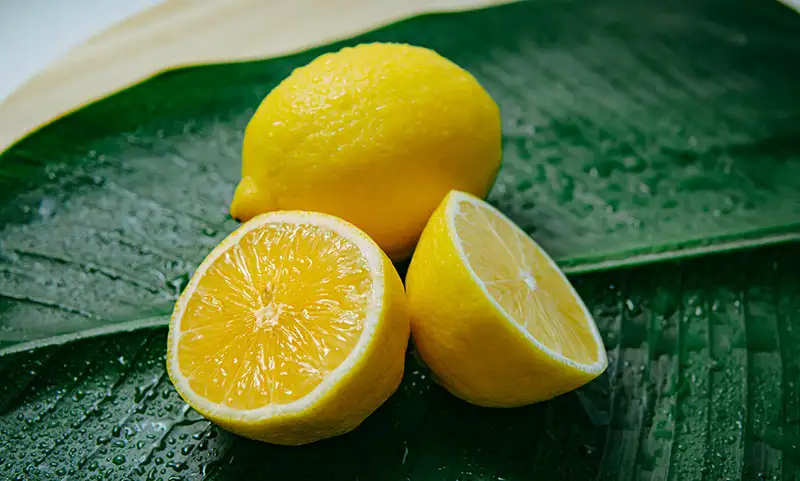
Lemon
- Nutrient
Rich in vitamin C, potassium, and magnesium. 39 kcal, minimal traces of fat.
- Recommended
Yes, because lemons are great suppliers of vitamin C.
